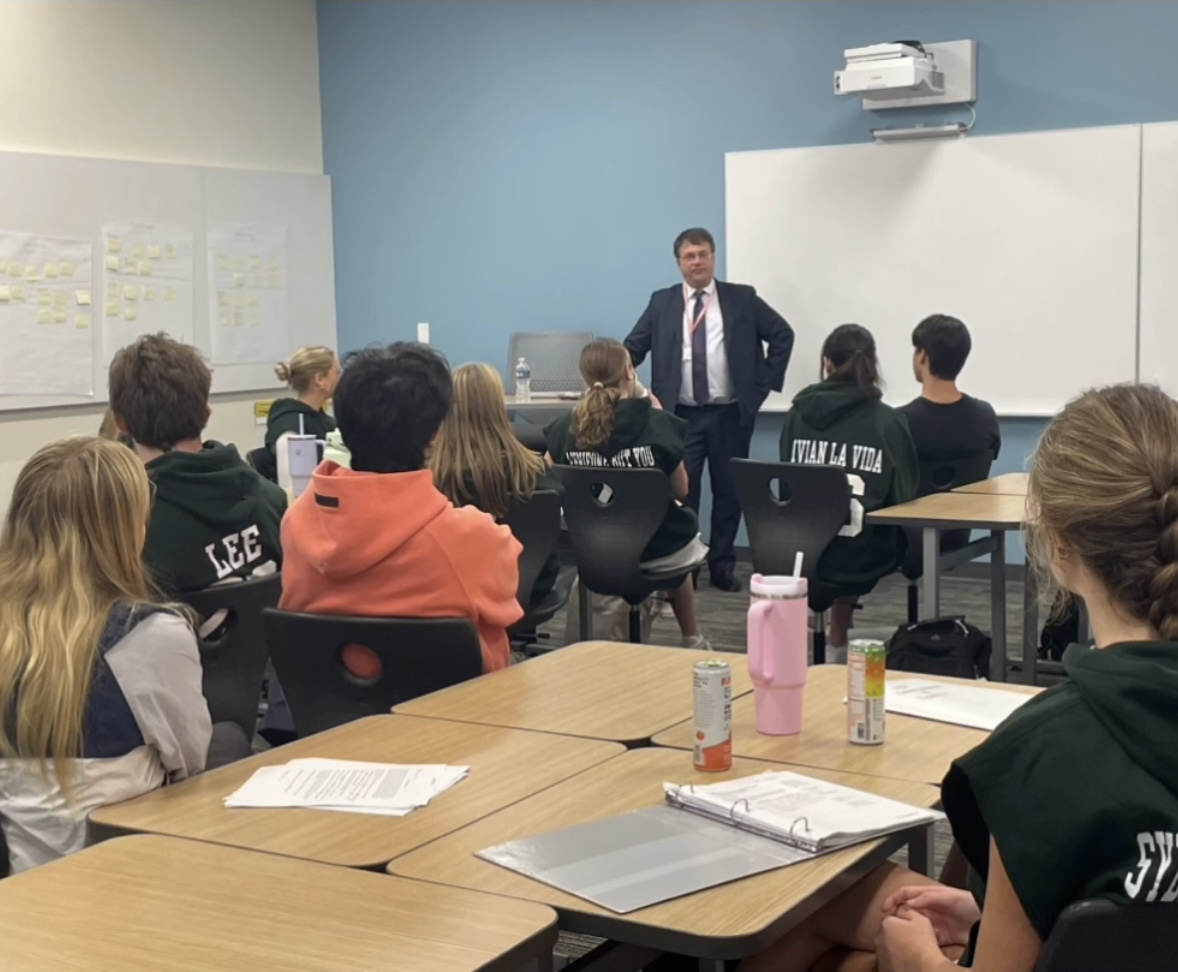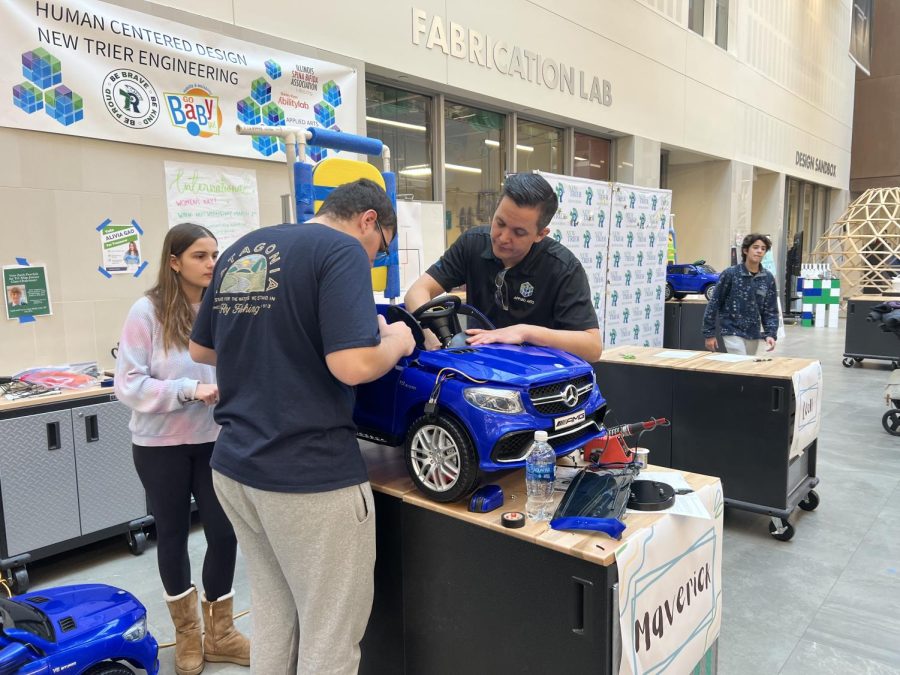Introduction to Engineering students participate in GoBabyGo
Students work to assist toddlers with spinal cord condition
Green
Intro to Engineering students collaborate to construct and modify miniature cars for children with spina bifida who have mobility issues
While walking through the scrounge on Monday, March 6, you might have encountered rows of miniature cars. While it may be an odd sight for a high school hallway, their purpose is anything but odd.
Continuing the successful program that began last year, Introduction to Engineering students built and modified these cars for a program called GoBabyGo.
The vehicles assist children with spina bifida— a condition that occurs when the spinal cord does not develop properly and causes mobility problems.
The design of the seats were built to allow each toddler to sit with correct posture and exercise full control over the vehicle, as spina bifida usually inhibits such posture.
Engineering teacher Joseph Morales left it up to the students to brainstorm and determine the best fit plan and strategies to go about the building process. Students also needed to work with a hard deadline.
“They will be doing the actual fitting with the kids during the first week of March,” said Morales.
In collaboration with Devices 4 Disabled, the Shirley Ryan Ability Lab and the Illinois Spina Bifida Association, sophomore Elyse Newlands explains that she and her fellow students worked to “rewire the individual parts of the car to make it suitable and helpful for each child.”
The design of the seats allows each toddler to sit with correct posture and exercise full control over the vehicle. In order to give the children as much freedom and creativity as possible, Newlands and her other classmates made modifications to each car, making them easily accessible buttons that helps them direct the car and steer it themselves.
According to Sophomore Charlie Harre, the carts lack an actual gas pedal, and have a stroller type design handle in order for parents’ use.
More than 40 schools across the nation have started the GoBabyGo project, which also includes programs focused on wearable technology for kids and harness systems to aid people in regaining mobility.
Sophomore engineering student Kai Offenbacher reflected on the excitement surrounding how successful the program was in 2022.
“It really gave the kids freedom and more ability generally,” he said.
Another student builder, Junior Caroline Tzur, said last year students were only able to build one or two cars but this year they have many more to work with and manipulate.
The single-seat cars give children the option to drive indoors and greatly support toddlers with spina bifida who are often paralyzed from the waist down. Along with helping others, students in the class are gaining independence, using their own initiative to continue supporting the program while broadening their own collaborative and engineering skills.
New Trier’s commitment to the GoBabyGo initiative will continue next year, meaning that engineering students will have the opportunity to renovate these vehicles again, for a whole new group of aspiring children.








































